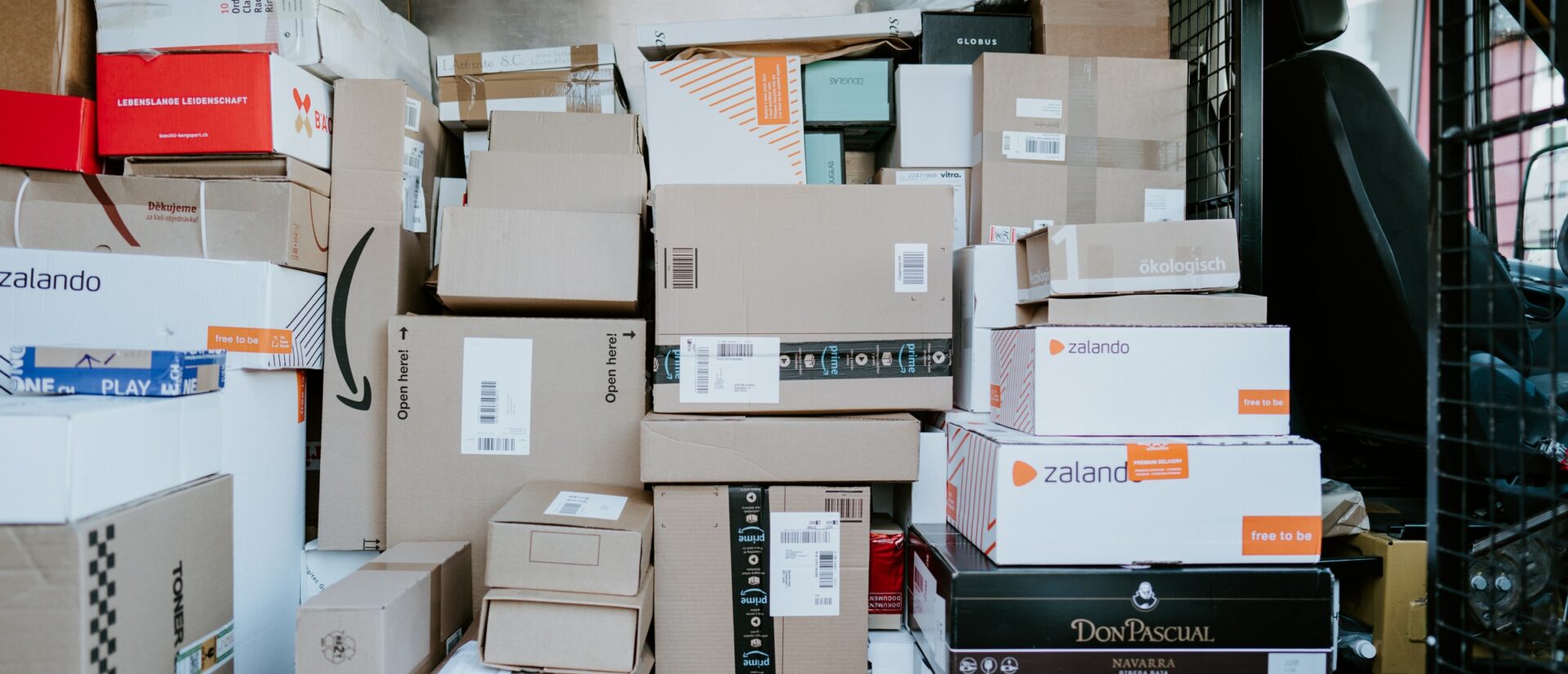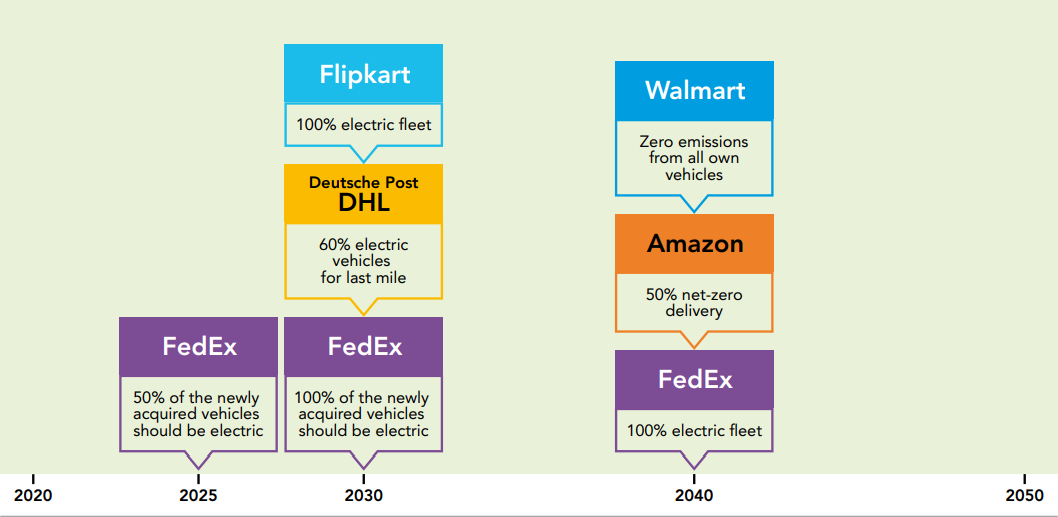
Delivery companies need more ambitious goals to help curb global warming
Despite the fact that the fastly growing e-commerce sector has a big and increasing impact on global warming, six leading delivery companies to date have failed to formulate goals that are sufficiently ambitious. In “Parcel delivery on a warming planet”, SOMO looked at the efforts and ambitions of Amazon, Deutsche Post DHL Group, FedEx, Flipkart, UPS, and Walmart in relation to the impact of the so-called “ ” on global warming.
Parcel delivery on a warming planet
Most companies analysed in the report have committed to reducing their emissions to either zero or net-zero by either 2040 or 2050. In addition, some of the companies have also set specific zero emissions targets for their last-mile delivery vehicle fleets. However, the concrete translation of their commitments into companies’ delivery operations is generally not clearly visible. In short, all six companies still have a long way to go to achieve their fleet emissions targets.

Accelerate and upscale
“Transport will be the biggest source of new greenhouse gas emissions in the decades until 2050 and the number of delivery vehicles is expected to increase by 36 per cent in 2030. Most companies are currently only starting fleet electrification and will need to accelerate and upscale their efforts in order to achieve their own climate goals and realise sustainable last-mile delivery”, says SOMO researcher David Ollivier de Leth.
The negative impacts of last-mile deliveries are felt most prominently in cities. They endure increasing levels of greenhouse gas emissions and struggle with traffic congestion and air pollution caused by increasing numbers of delivery vehicles.
Therefore, cities are crucial in fighting global warming and can take up a leading role in accelerating the last-mile emissions reduction efforts of e-commerce companies. The report specifically looks at how Delhi, London and Los Angeles encourage, facilitate, and regulate sustainable last-mile delivery systems.
Just transition
In addition to the company-specific analysis, the report also flags a number of structural, sector-wide issues related to electrification of transport. These issues include the environmental and social impacts of the production of electric vehicles, including CO2 emissions and environmental impacts. Another important dimension is the strong pressure to reduce costs and the complexity of subcontracting relations in the last-mile delivery sector which reduces subcontractor companies’ abilities to mitigate environmental impacts. In fact, when subcontractors are squeezed to deliver at the lowest possible cost, they will likely be unable to make long-term investments in electric vehicles, for instance.
Ilona Hartlief: “While these issues should not discourage or slow down companies’ efforts to eliminate emissions, it is essential to take them into account to ensure a truly sustainable and just transition.”
Do you need more information?
-

Ilona Hartlief
Researcher
Related content
-
The battery paradox Published on:
 Alejandro GonzálezPosted in category:Publication
Alejandro GonzálezPosted in category:Publication Alejandro González
Alejandro González
-
 How the green energy transition fuels human rights abuses in South AfricaPosted in category:News
How the green energy transition fuels human rights abuses in South AfricaPosted in category:News Alejandro GonzálezPublished on:
Alejandro GonzálezPublished on: -
Declaration on mining and the energy transition ahead of COP26Posted in category:Published on:Statement
-
Pull the plug on the Energy Charter TreatyPosted in category:Opinion
 Bart-Jaap VerbeekPublished on:
Bart-Jaap VerbeekPublished on: Bart-Jaap Verbeek
Bart-Jaap Verbeek -
Telenor’s exit from Myanmar – a cautionary tale for the just transitionPosted in category:Opinion
 Audrey GaughranPublished on:
Audrey GaughranPublished on: Audrey Gaughran
Audrey Gaughran -
 Coal mines must close, but not without just solutions for communities and workersPosted in category:NewsPublished on:
Coal mines must close, but not without just solutions for communities and workersPosted in category:NewsPublished on:



